10 start with O start with O
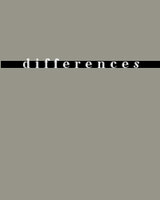
Contributors. Athena Athanasiou, Etienne Balibar, Mara de Gennaro, Carolyn J. Dean, Brady Thomas Heiner, Lynne Joyrich, Jacques Lezra

Banished from the Massachusetts Bay Colony for his refusal to conform to Puritan religious and social standards, Roger Williams established a haven in Rhode Island for those persecuted in the name of the religious establishment. He conducted a lifelong debate over religious freedom with distinguished figures of the seventeenth century, including Puritan minister John Cotton, Massachusetts governor John Endicott, and the English Parliament.
James Calvin Davis gathers together important selections from Williams’s public and private writings on religious liberty, illustrating how this renegade Puritan radically reinterpreted Christian moral theology and the events of his day in a powerful argument for freedom of conscience and the separation of church and state. For Williams, the enforcement of religious uniformity violated the basic values of Calvinist Christianity and presumed upon God’s authority to speak to the individual conscience. He argued that state coercion was rarely effective, often causing more harm to the church and strife to the social order than did religious pluralism.
This is the first collection of Williams’s writings in forty years reaching beyond his major work, The Bloody Tenent, to include other selections from his public and private writings. This carefully annotated book introduces Williams to a new generation of readers.
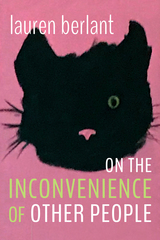
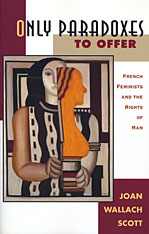
When feminists argued for political rights in the context of liberal democracy they faced an impossible choice. On the one hand, they insisted that the differences between men and women were irrelevant for citizenship. On the other hand, by the fact that they acted on behalf of women, they introduced the very idea of difference they sought to eliminate. This paradox--the need both to accept and to refuse sexual difference in politics--was the constitutive condition of the long struggle by women to gain the right of citizenship. In this new book, remarkable in both its findings and its methodology, award-winning historian Joan Wallach Scott reads feminist history in terms of this paradox of sexual difference.
Focusing on four French feminist activists--Olympe de Gouges, who wrote the Declaration of the Rights of Woman and Citizen during the French Revolution; Jeanne Deroin, a utopian socialist and candidate for legislative office in 1848; Hubertine Auclert, the suffragist of the Third Republic; and Madeleine Pelletier, a psychiatrist in the early twentieth century who argued that women must "virilize" themselves in order to gain equality--Scott charts the repetitions and variations in feminist history. Again and again, feminists tried to prove they were individuals, according to the standards of individuality of their day. Again and again, they confronted the assumption that individuals were men. But when sexual difference was taken to be a fundamental difference, when only men were regarded as individuals and thus as citizens, how could women also be citizens? The imaginative and courageous answers feminists offered to these questions are the subject of this engaging book.

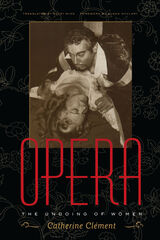

The abortion fight has long been a crucible of political tactics, with both sides employing strategies ranging from litigation to civil disobedience to outright violence. Anti-abortion activists have arguably been more tactically innovative than their pro-choice peers. Opposition and Intimidation looks at how their use of political harassment fits—or doesn't—with more conventional political efforts in the struggle over abortion.
Alesha Doan's insightful interviews and observations powerfully portray anti-abortion activists' relationship to the objects of their protest. Her portrait is augmented by thorough quantitative analysis of harassment's role within the movement's multitiered strategy—a strategy that Doan shows has forced a decline in the availability and popularity of abortions. Using her unique study of the anti-abortion movement as a model, Doan extends her findings to propose a novel and valuable theory of the new politics of harassment.
"An interesting and sophisticated account. Seamlessly weaves narrative and analysis, tying local action to national strategy. Explores uncharted territory in the abortion controversy and expands our understanding of political action."
—Deborah R. McFarlane, University of New Mexico
"For 40 years, abortion politics have been endlessly fascinating to American scholars and journalists alike because they generate unique political phenomena that challenge traditional theories of political behavior. In this book, Doan goes straight to the heart of the matter by describing, evaluating, and explaining one of the most characteristic and complex of these phenomena—political harassment. In a well-written narrative that weaves qualitative and quantitative data, she gives us the first scholarly look at this political tactic, whose relevance and use go well beyond American abortion politics."
—Chris Mooney, University of Illinois at Springfield
"The book contributes to political theory and knowledge by adding new empirical data gathered from interviews with those in the front lines of the struggle over abortion. The author refines and develops a category of unconventional political participation—political harassment of nongovernmental actors—and explains why it is particularly effective in undermining the rights of women seeking abortions, as well as the rights of abortion service providers."
—Nikki R. Van Hightower, Texas A&M University
Alesha E. Doan is Assistant Professor of Political Science at the University of Kansas.

Along the way, she examines marriage manuals of the 1920s and 1930s, designed to teach heterosexual couples how to achieve simultaneous orgasms; provides a queer reading of behavioral modification practices of the 1960s and 1970s, aimed at transforming gay men into heterosexuals; and demonstrates how representations of orgasm have shaped ideas about sexuality and sexual identity.
A confident and often counterintuitive engagement with feminist and queer traditions of critical thought, Orgasmology affords fresh perspectives on not just sex, sexual orientation, and histories of sexuality, but also agency, ethics, intimacy, modernity, selfhood, and sociality. As modern subjects, we presume we already know everything there is to know about orgasm. This elegantly argued book suggests that orgasm still has plenty to teach us.
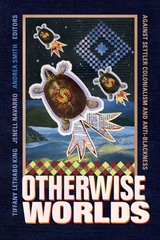
Contributors
Maile Arvin, Marcus Briggs-Cloud, J. Kameron Carter, Ashon Crawley, Denise Ferreira da Silva, Chris Finley, Hotvlkuce Harjo, Sandra Harvey, Chad B. Infante, Tiffany Lethabo King, Jenell Navarro, Lindsay Nixon, Kimberly Robertson, Jared Sexton, Andrea Smith, Cedric Sunray, Se’mana Thompson, Frank B. Wilderson
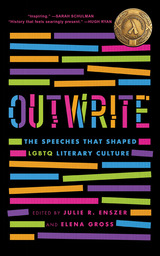
This collection gives readers a taste of this fabulous moment in LGBTQ literary history with twenty-seven of the most memorable speeches from the OutWrite conference, including both keynote addresses and panel presentations. These talks are drawn from a diverse array of contributors, including Allen Ginsberg, Judy Grahn, Essex Hemphill, Patrick Califia, Dorothy Allison, Allan Gurganus, Chrystos, John Preston, Linda Villarosa, Edmund White, and many more.
OutWrite offers readers a front-row seat to the passionate debates, nascent identity politics, and provocative ideas that helped animate queer intellectual and literary culture in the 1990s. Covering everything from racial representation to sexual politics, the still-relevant topics in these talks are sure to strike a chord with today’s readers.
READERS
Browse our collection.
PUBLISHERS
See BiblioVault's publisher services.
STUDENT SERVICES
Files for college accessibility offices.
UChicago Accessibility Resources
home | accessibility | search | about | contact us
BiblioVault ® 2001 - 2024
The University of Chicago Press









